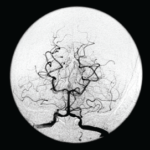After meeting with the rheumatologist, Ms. Fritz sees the patient again to summarize their care plan and ensure the patient understands it. She’ll inform other departments about any changes to the patient’s treatment plan and order diagnostic tests.
Excel as a CNS
According to the ACR, a CNS’ educational curriculum contains courses in advanced health assessment, physiology, advanced pathophysiology, pharmacology, advanced therapeutics and specialty preparation, as well as research methodology and utilization.
When looking to excel in a CNS position, Ms. Bond advises CNS applicants to choose a mentor who will serve as a role model. Seek out educational opportunities continuously, particularly on new information about rheumatologic diseases and pharmacological treatments.
“As a CNS, I continuously represent the practice and collaborating physician,” she says. “Always be professional inside and outside the office.”
Promote team-building efforts within your practice during staff meetings, Ms. Bond suggests. Such efforts include having weekly huddles, encouraging staff to attend informational dinners and praising staff efforts to enhance education.
“Team building is important because caring for patients requires coordination and help from other departments,” Ms. Fritz says.
Initially, a newly hired CNS should shadow a rheumatologist to learn what the rheumatologist does. Some clinical training and education on the modalities of care and diagnostic criteria may be necessary, Ms. Fritz says.
“After a CNS becomes familiar with disease processes and medications, they can effectively teach patients, their family members and other healthcare providers about treatment plans,” Ms. Fritz says.
Karen Appold is a medical writer in Pennsylvania.



